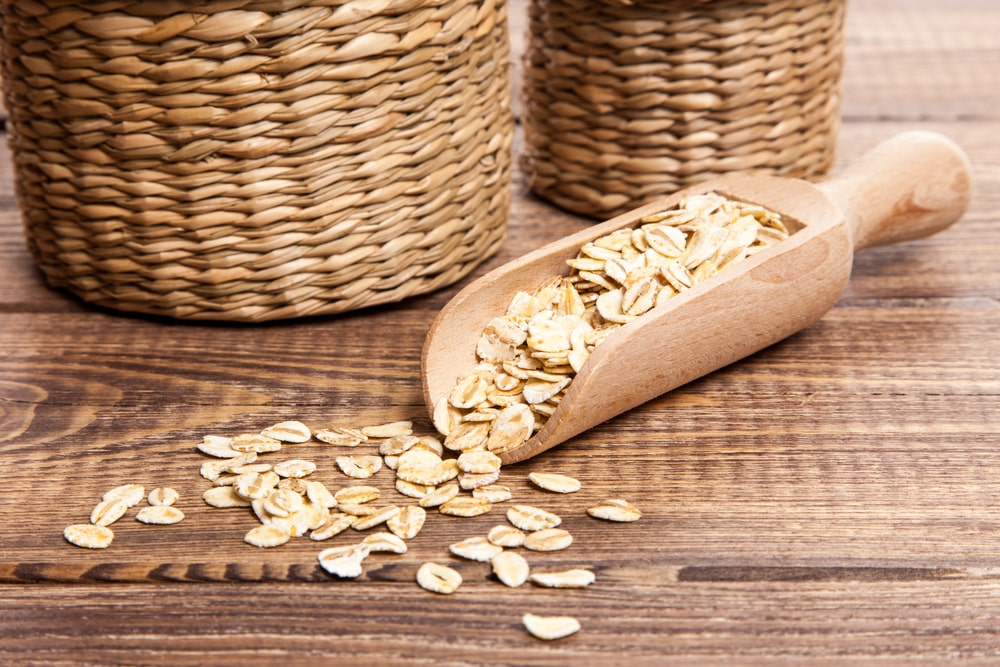
The consumption of grains is common for everyone. While everyone uses these grains to make bread and flour for baking, they are also used in brewing processes to supplement the mash’s malt. For this reason, we are talking about flaked oats vs. flaked wheat, as these two grains are widely used to enhance beers by improving the foam and mouthfeel. So, let’s see how these two grains impact the beer and the entire brewing process!
Flaked Wheat vs. Flaked Oats
Flaked Wheat
Flaked wheat is defined as the unmalted wheat variety that’s loaded with molecular protein and is widely used in the brewing process as it helps achieve stable foam. In addition, it improves the turbidity and mouthfeel of the beer. For the most part, it’s used by British breweries (it’s their traditional practice), and they usually use 5% to 10% of the wheat grist to supplement the wort nitrogen and improve head retention.
The best thing about flaked wheat is that it adds a crispy mouthfeel to the beer, which is why it suits a variety of European wheat beers. In addition to this, flaked wheat is used in Saisons, New England IPAs, and haze. In fact, many Belgian companies use this grain as it incorporates a deeper flavor to the Belgian beer. It has a crisp flavor and boasts all the benefits of unmalted wheat, but it still has a flaked form, which makes it easier to process.
Flaked wheat adds a strong grainy flavor to the beer and changes the color to light straw. When used in the beer, it adds certain cloudiness to the brew, which improves the head formation. The flaked wheat tends to have pre-gelatinized starch, which eliminates the need to use cereal mash separately. However, it has a high protein level, which is why it’s recommended to opt for a protein rest. All in all, it increases head retention by 8% and grist by 40%.
For the most part, it produced beers with a fuller body and mild sweetness as compared to sweeter beers produced by malted wheat. For this reason, it’s used by brands that create refreshing and crisp beer. To create the lambic beers, a minimum of 40% raw and flaked wheat is used. It’s popular for easier processing as there is no need for milling and can be added to the barley malt directly. However, the beers made from flaked wheat are more expensive, as flaked wheat is more expensive as it requires special growing environments.
Flaked Oats
The flaked oats are known for the higher levels of gums, beta-glucans, and lipids, which results in a creamier beer that also has a silky mouthfeel. For the most part, flaked oats are used as adjuncts for oatmeal stouts, but they are also gaining popularity in other types of beers, including hopping and big beers. In particular, it has become a popular choice for New England IPAs because of the fullness and texture of the palate help with imparting.
The addition of flaked oats improves the impact; when the grist surpasses the 20% value, the gums and beta-glucans slow down the effect. It has a silky and creamy flavor, and the usage is maximum of up to 20%. The flaked oats are loaded with gums, beta-glucans, and lipids, which actually play a role in enhancing the creaminess and mouthfeel of the beer.
They are commonly added to the beers to achieve a silky texture. Many people don’t know this, but flaked oats have a high-fat content, which is why the beer made from flaked oats has a limited shelf life and must be refrigerated to make sure the flavor and texture don’t depreciate. In addition to this, these oats are quite similar to quick and rolled oats available in the market, but they cannot be used in brewing.
As far as the availability of flaked oats is concerned, they can be easily purchased from the homebrew supply stores. When it comes down to the value, the average value depends on the brand and manufacturer, but one thing is certain, it has to be added to the mash to create effective results. However, it cannot be added to the Belgian or European beers as the grist is limited!